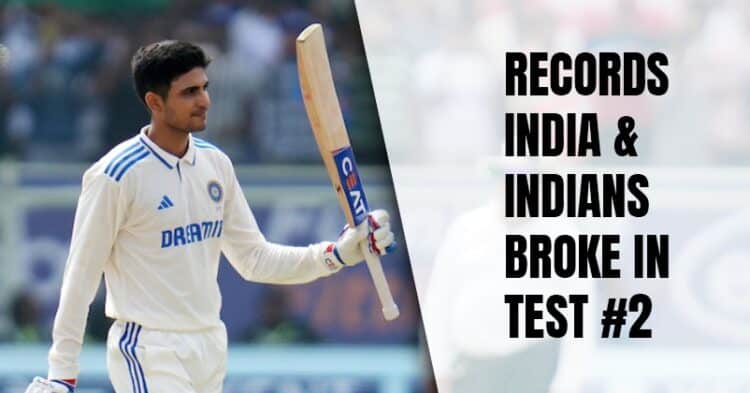India produced a commanding all-round performance to defeat England by 336 runs in the second Test of the ongoing Anderson-Tendulkar Trophy, held at Edgbaston from July 2 to 6. With this emphatic win, India not only squared the five-match series 1-1 but also set a host of individual and team records that marked the game as one of the most memorable in the recent red-ball history.

Set a daunting target of 608 runs, England crumbled for 271 in their second innings on the final day, with Akash Deep emerging as the chief destroyer. The right-arm pacer claimed six wickets for 99 runs on Sunday, finishing the match with figures of 10 for 187 in 41.1 overs, the best ever by an Indian bowler in a Test played in England. He surpassed the previous mark held by Chetan Sharma, who had taken 10 for 188 in the same venue in 1986.
India’s margin of victory — 336 runs — was their biggest ever in an overseas Test, surpassing the 318-run win against West Indies in North Sound in 2019. Moreover, this triumph made India the first Asian team to win a red-ball fixture against England at Edgbaston, a ground that had long been an unyielding fortress for the hosts.
Shubman Gill, leading from the front, became the first Indian and also the first Asian captain to win a Test match in Birmingham. Eight Indian skippers before him, including icons like MS Dhoni, Virat Kohli and Kapil Dev, had failed to conquer this venue.
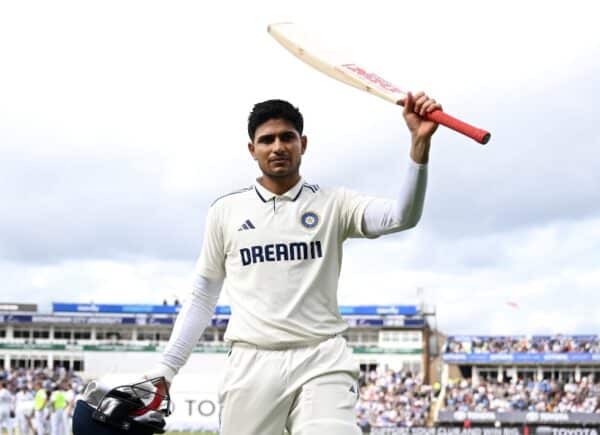
Shubman Gill’s performance was historic on multiple fronts. The 25-year-old became the youngest Indian captain to win an overseas Test, breaking Sunil Gavaskar’s record from 1976. He also delivered a batting masterclass across both the innings, amassing a staggering 430 runs in the match, eclipsing Sunil Gavaskar’s previous Indian record of 344 runs in a Test. This also marked the highest match aggregate by a visiting batter in Test history, bettering Mark Taylor’s 426 against Pakistan in 1998.
In doing so, Shubman Gill became the first player ever to score 200 and 150 in a single Test and joined an elite club of five batters to have crossed the 400-run mark in a Test match, alongside Graham Gooch, Mark Taylor, Brian Lara and Kumar Sangakkara. He is also only the third Indian captain after Sunil Gavaskar and Virat Kohli to notch up centuries in both the innings of a Test.
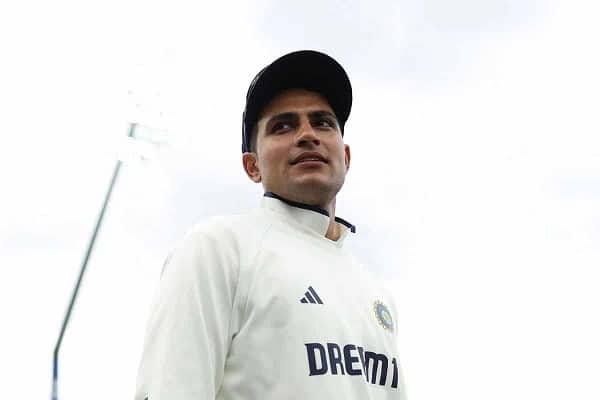
Shubman Gill’s 269-run knock in one of the innings broke multiple records. It is now the highest individual score by an Indian captain in Tests, overtaking Virat Kohli’s 254* against South Africa in 2019. It is also the highest score by an Indian in an overseas Test, surpassing Sachin Tendulkar’s 241* in Sydney (2004), and the highest by an Indian in England, eclipsing Sunil Gavaskar’s 221 at The Oval in 1979. Among visiting captains, only Bob Simpson (311 in 1964) and Graeme Smith (277 & 259 in 2003) have scored more in an innings on the English soil.
He became the third Indian after Virender Sehwag and Rahul Dravid to score 250-plus in an overseas Test and the sixth Indian skipper to register a double century in the format. Shubman Gill is also the second youngest Indian captain to achieve this feat, behind only MAK Pataudi. Additionally, his three centuries in two Tests as captain put him in league with Virat Kohli and Sunil Gavaskar for the fastest centuries as the Indian Test captains.
Shubman Gill also achieved another rare feat by being involved in four 100-plus run partnerships in a single Test match, making him the first Indian and fifth player in the world to do so, joining the likes of Hanif Mohammad, Mark Taylor, Graham Gooch and Joe Root.
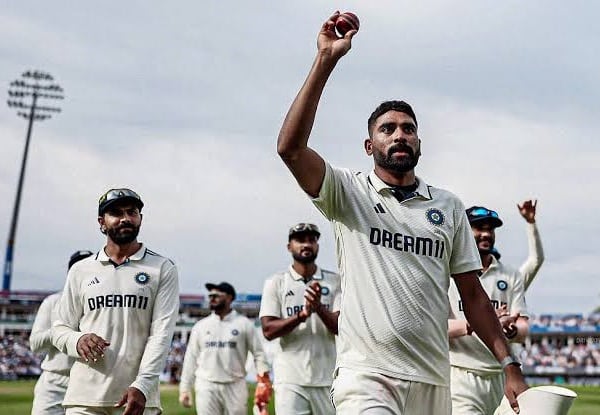
While Shubman Gill dazzled with the bat, India’s bowlers were equally effective. Mohammed Siraj claimed six wickets for 70 runs in England’s first innings. With this, he became the first Indian to take six-wicket hauls in both England and South Africa, and only the second Indian after Jasprit Bumrah to take five-wicket hauls in all four major SENA countries (South Africa, England, New Zealand, Australia) and West Indies.
All-rounder Ravindra Jadeja continued his stellar form in the World Test Championship, scoring 89 and an unbeaten 69 across the two innings. He also became the first player to register the double of 2000 runs and 100 wickets in the WTC format.
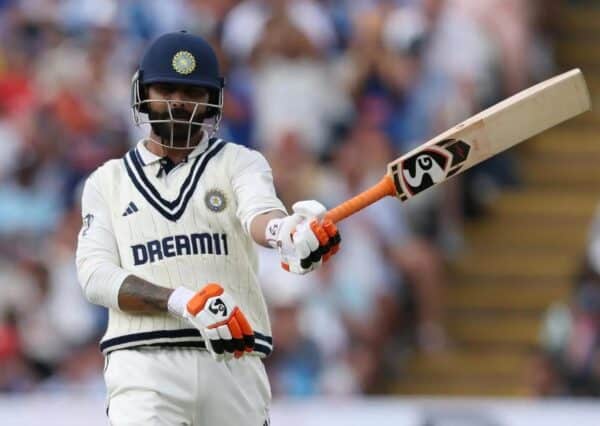
Young opener Yashasvi Jaiswal continued his impressive rise, becoming the fastest Indian to reach 2000 runs in Test cricket. He broke Sunil Gavaskar’s record (23 Tests), achieving the milestone in his 21st Test and equaling Rahul Dravid and Virender Sehwag in terms of innings taken (40).
From England’s side, Jamie Smith stood tall with the career-best unbeaten 184 in the first innings, setting a new benchmark for the highest score by an England wicketkeeper-batter in Test cricket. He surpassed Alec Stewart’s 173 made against New Zealand in 1997.
India’s batting dominance was so profound that they became only the sixth team in the Test history and the first Indian side in 93 years to breach the 1000-run mark in a single match, finishing with 1014 runs across both the innings.
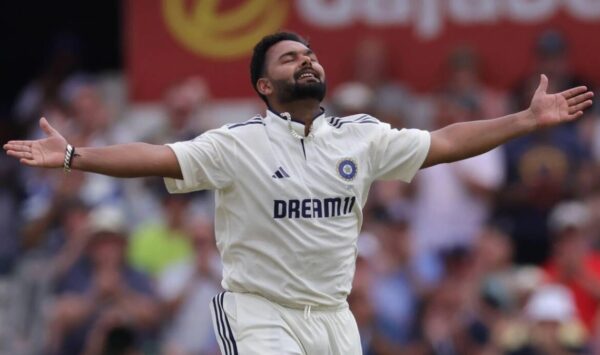
Adding a touch of flair to proceedings, Rishabh Pant continued his love affair with England. His 24 sixes in 11 Tests on the English soil are now the most by any batter in a single overseas country. The next best is Ben Stokes with 21 sixes in South Africa.
As the teams now shift their focus to the third Test at Lord’s, scheduled from July 10 to 14, momentum firmly lies with India.
After a match filled with record-breaking performances and commanding cricket, all eyes will be on whether Gill and his men can maintain their upward march in the series.
